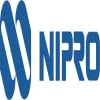Dive Brief:
- The Food and Drug Administration has rejected Waylivra, a treatment for a rare disease that impairs the body from metabolizing fats, prompting shares in both of its manufacturers to drop as questions loom about their ability to bring new drugs to the U.S. market.
- Those manufacturers, Ionis Pharmaceuticals and its subsidiary Akcea Therapeutics, didn't disclose why they received a Complete Response Letter on Waylivra, but said in an Aug. 27 statement they plan to "work with the FDA to confirm the path forward" for the drug.
- On May 10, an FDA advisory committee voted 12-8 in favor of approving Waylivra. Though the agency tends to follow such suggestions, safety concerns appear to have bogged down the drug's approval chances — so much so that some sell-side analysts had nixed it from their valuations of Ionis.
Dive Insight:
Ionis made a name for itself through an antisense technology platform that has placed it among the leading RNA therapeutics companies. In June, the European Commission OK'd Ionis and Akcea's Tegsedi (inotersen), a treatment for hereditary transthyretin amyloidosis (hATTR) and the first Akcea drug cleared for market.
Stateside approvals have been harder to come by, however.
Though Tegsedi was slated to be the first RNA-targeted therapy for hATTR in the U.S., Akcea announced in May the FDA needed more time to review the company's responses to agency information requests and decided to push back the therapy's approval decision deadline to Oct. 6. The delay opened the door for rival Alnylam Pharmaceuticals to be first to market, securing a thumbs up for RNA interference drug Onpattro (patisiran) for hATTR nerve damage early this month.
Even without that advantage, analysts expected Onpattro to beat Tegsedi on the commercial front. In its most recent Drugs to Watch report, market research firm Clarivate predicted Onpattro sales of $373 million and Tegsedi sales of $106 in 2019. The firm estimated sales for each brand will hit $1.21 billion and $533 million by 2022.
Wall Street has less riding on Waylivra (volanesorsen). The safety signals — particularly two cases of serious thrombocytopenia — seen in a pivotal study of the drug weighed heavily on regulators during the May advisory committee meeting. To that point, Evercore ISI analyst Joshua Schimmer hypothesized that should Waylivra gain approval, the FDA may limit it to only ultra high-risk or orphan populations.

"At this point, our confidence in this program and the platform overall (in addition to its competitiveness vs [Alnylam's] RNAi for intrathecal delivery) is dampened to a point that, along with our concerns about the broad commercial strategy, we are no longer about to recommend shares," Schimmer wrote in a May 8 note leading up to the meeting.
The drug's rejection is therefore notable on two fronts.
On the one, the FDA's uncommon choice to diverge from the advisory committee recommendations indicates it still has serious qualms with Waylivra's safety.
On the other, it raises larger questions about how Ionis and Akcea are constructing their drug approval applications. Investors clearly want answers, as Ionis and Akcea shares fell 15% and 25%, respectively, by late Tuesday morning.














